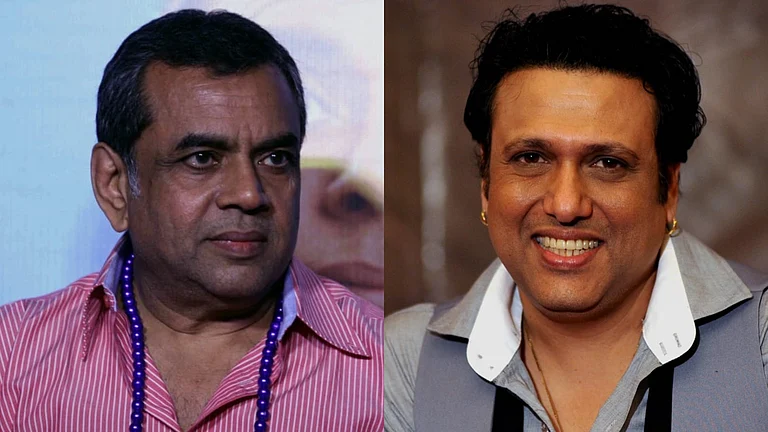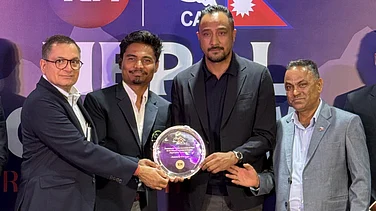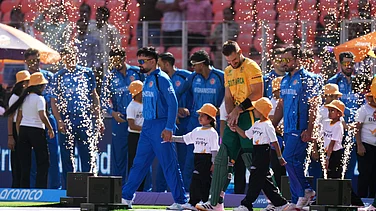Hockey remains one the cleanest sport in the world with just eight players being suspended for dope-related offences in the last five years, and the international hockey federation (FIH) wants to keep it that way by remaining vigilant. (More Hockey News)
Since January 2017, only 14 dope violations (adverse analytical findings) have been reported, of which eight have been sanctioned. Almost all the cases related to recreational drugs and not performance-enhancing substances.
According to FIH, there was just one "potential anti-doping rule violation (ADRV)" in 2021 but no sanction was imposed.
"In line with the World Anti-Doping Agency's (WADA) aims and ambitions, FIH takes its commitment to running a clean sport extremely seriously and works to ensure that it stays abreast of any developments in doping, testing and education around the subject," FIH senior communications manager Nicolas Maingot told PTI.
The number of dope tests conducted in a year is, however, very low as compared to other sports like athletics, swimming, weightlifting and even a team sport like football. Due to the low number of positive cases over the years in hockey, there may not be the need to test a lot of samples.
Around 20 samples had been collected in the ongoing World Cup till the end of crossover matches, which is very low for a global showpiece. Twenty-eight matches out of a total 44 had been played till the crossovers stage.
Compared to this, the 2022 FIFA World Cup in Qatar saw more than 1,600 dope samples being collected.
The FIH, however, said that "more samples may be collected" in the remaining matches (16 matches). It also said that the participating players have already been tested earlier.
The samples were collected by the officers of the National Anti-Doping Agency (NADA).
"All the teams were already tested. Players to be tested are drawn and this is conducted by NADO (National Anti-Doping Organisation)," Maingot said.
"The process is managed by ITA (International Testing Agency) but the Indian NADO is the one responsible for the sample collection."
In 2021, 200 samples from 177 players were collected, out of which 127 were in-competition and 73 out-of-competition. Urine samples numbered 183, while 17 were blood samples. Fifty-one per cent of the samples were of male players.
The players from whom samples were collected in 2021 belonged to 32 countries.
India was among 10 countries whose players were tested the most in 2021.
In 2020, the FIH contractually delegated the management and implementation of parts of its anti-doping programme to Switzerland-based ITA.
The FIH said that since 2016, the number of tests per year has been increasing in order to maintain its status as one of the cleanest sports in the world. Every athlete who competes in an FIH event must have completed an Anti-Doping online educational course within the previous two years and this was included in tournament regulations.
"Since July 2015, the FIH has made it a requirement that all players must have completed an approved anti-doping education programme to be able to compete in FIH events. Any players who do not hold a valid Anti-Doping Certificate (valid for 2 years) will not be allowed to play in the competition until they have done so."
On-site anti-doping education booths were to be set up at events like the FIH Men’s World Cup 2023, but it could not be implemented this time in Bhubaneswar and Rourkela.
"Not for this event due to the complexity of the travels and time limitations. However, all athletes had to pass through an anti-doping education course to participate in this event," Maingot said.
Despite the low number of positive and sanctioned cases, there was a famous doping case in world hockey more than a decade ago and the Spanish women's team was on the verge of missing the 2008 Olympic Games after winning the qualifying event in Baku, Azerbaijan.
Two of their players had tested positive for party drug MDMA (methylenedioxy methamphetamine) also known as 'Ecstasy' or 'Molly'. Spain alleged sabotage in Baku. According to FIH rules at the time, if more than one member tested positive, the whole team could be disqualified.
However, the FIH disciplinary commission found that only one player was guilty of doping violation. Azerbaijan appealed against the decision to the Court of Arbitration for Sports (CAS), but Spain won the case.
In India, Jarmanpreet Singh, who is in the India team for the ongoing World Cup, was handed a two-year suspension after failing a random dope test in 2015 when he was playing in the Hockey India League.
Former India goalkeeper Akash Chikte was suspended for two years in 2018 but the ban period was reduced to 13 months later after the appeal panel of the National Anti-Doping Agency concluded that he did not take the prohibited substance intentionally.


























